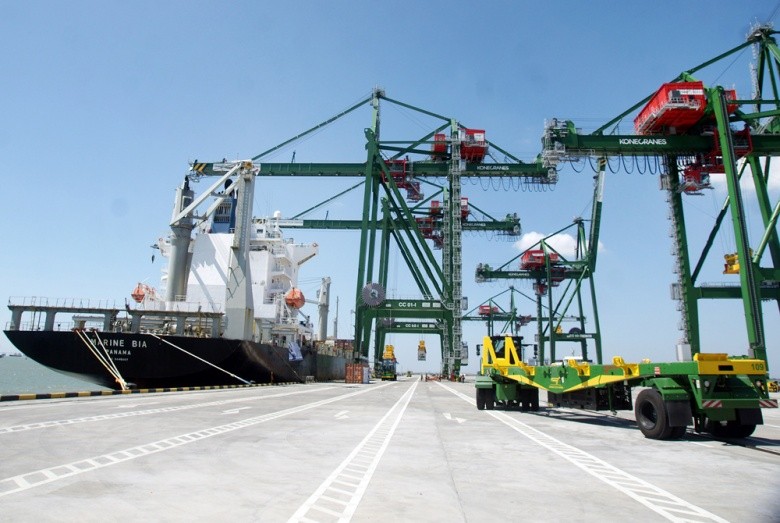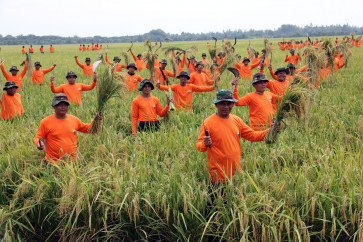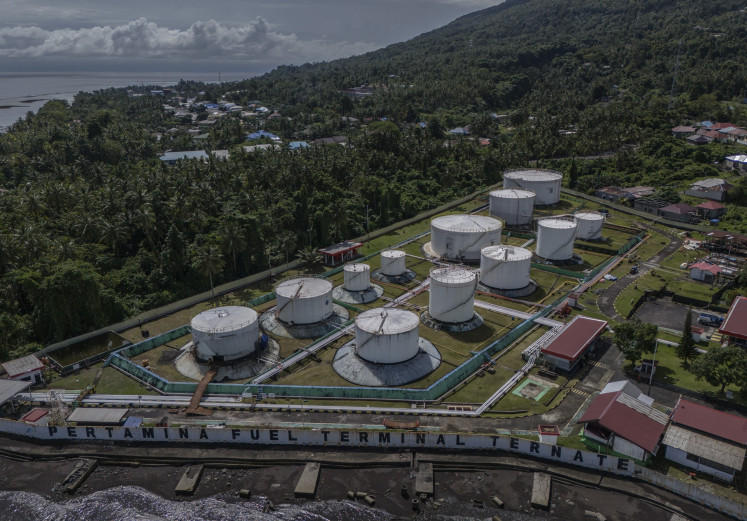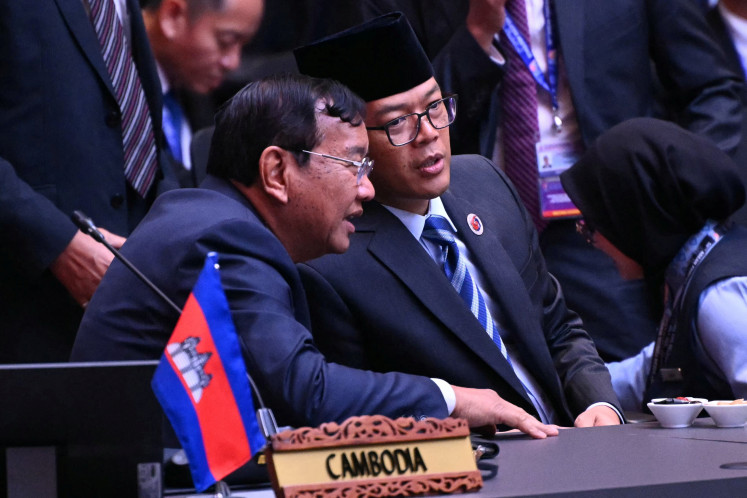Popular Reads
Top Results
Can't find what you're looking for?
View all search resultsPopular Reads
Top Results
Can't find what you're looking for?
View all search resultsMinistry relies on ‘maritime highway’ amid pandemic
Change text size
Gift Premium Articles
to Anyone
T
he Transportation Ministry is relying on a long-running sea transportation program – the maritime highway – to support logistics in the country amid disruption induced by the COVID-19 pandemic.
Transportation Minister Budi Karya Sumadi on Sunday stated that optimizing the maritime highway, a flagship program in President Joko “Jokowi” Widodo’s first term in office, was part of the government’s efforts to ensure the movement of goods during the health crisis.
“The maritime highway is expected to secure supply logistics all across Indonesia during the pandemic,” Budi said according to a press release. “To optimize the maritime highway program, all stakeholders need to take part to maximize the carrying capacity of the ships and reduce price disparity [among islands].”
COVID-19 restrictions, which are now being phased out in some places, have caused logistical disruptions along the supply chain by limiting mobility in an effort to contain the spread of the coronavirus, which has infected more than 46,000 people nationwide.
The maritime highway, which has run since 2015, is a subsidized cargo program that to distribute staple goods and major consumer items — including rice, sugar, flour, cooking oil and eggs — as well as steel and cement to remote regions of the archipelago.
It aims to reduce the price disparity across the country’s many islands, which is generally caused by costly logistics.
Seven of the 26 maritime highway routes are operated by private shipping companies, while the majority of the rest are run by state-owned shipping company Pelayaran Nasional Indonesia (Pelni). The routes connect major cities with more remote areas, including Tanjung Perak in East Java and Timika, Papua.
Indonesian Logistics Association (ALI) chairman Zady Ilham Masita slammed the program as “ineffective”, as it had not boosted the sea freight volume, which had decreased by 50 percent from normal times since the pandemic swept the country in March.
“There has been no significant impact of the program as our sea shipment volume has been tanking since the pandemic,” he told The Jakarta Post on Tuesday via text messages.
The association in April reported an overall decline in business performance of more than 50 percent since the COVID-19 pandemic hit the country, while the logistics volume had decreased by up to 70 percent from normal times.
The ministry’s sea traffic director, Wisnu Handoko, claimed that the ships were filled with supplies on various routes.
“The departing ships’ load factors are above the average around 70 percent [of capacity] with several routes reaching 95 percent,” he said in a press statement.
Indonesian National Shipowners Association (INSA) reported in early May that container ship revenue had fallen by 10 to 25 percent from normal levels. Likewise, the revenue of bulk carriers – tankers, tugs and barges – dropped by 25 to 50 percent. The decline is partially due to the pandemic’s severe impact on the oil and gas industry, which is one of the country’s major users of sea transportation services.
INSA chairperson Carmelita Hartoto took a more positive stance on the program, stating that shipping companies were ready to expand their collaboration with the government on the program in the future.
“We are grateful that logistics shipments can still operate in line with schedules despite the pandemic. Private shipping lines are also ready to work together with the government, just like we’ve done before,” Carmelita told the Post on Tuesday.
However, she was of the view that the program still struggled with issues such as route monopolies as well as low cargo loads when returning from destination, particularly in the easternmost provinces.










